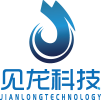Exploring the Benefits of PVDF Masterbatches in Industrial Applications
Exploring the Benefits of PVDF Masterbatches in Industrial Applications
Table of Contents
- Introduction to PVDF Masterbatches
- What is Polyvinylidene Fluoride (PVDF)?
- Key Properties of PVDF Masterbatches
- Applications of PVDF Masterbatches in Industry
- Advantages of Using PVDF Masterbatches
- Sustainability Aspects of PVDF Masterbatches
- The Future of PVDF Masterbatches in Industrial Applications
- FAQs about PVDF Masterbatches
- Conclusion
Introduction to PVDF Masterbatches
In the ever-evolving industrial landscape, materials that offer exceptional performance and versatility are of paramount importance. One such material is **Polyvinylidene Fluoride (PVDF)**, a high-performance polymer that has carved a niche for itself across various sectors. In this article, we explore the benefits of **PVDF masterbatches**—concentrated blends of PVDF with additives designed to enhance the performance of base materials in a multitude of applications.
What is Polyvinylidene Fluoride (PVDF)?
**Polyvinylidene fluoride (PVDF)** is a non-reactive, thermoplastic fluoropolymer that possesses a unique combination of properties, making it suitable for a wide array of industrial applications. Known for its excellent **chemical resistance**, **low friction**, and outstanding **thermal stability**, PVDF is often utilized where durability and performance are critical.
Key Properties of PVDF Masterbatches
PVDF masterbatches bring together the intrinsic properties of PVDF with various additives to optimize their functionality. Understanding these properties is crucial for determining their suitability for specific applications.
Chemical Resistance
One of the standout features of PVDF is its remarkable resistance to a wide range of chemicals, including acids, bases, and solvents. This makes PVDF masterbatches ideal for use in environments where chemical exposure is a concern, ensuring longevity and reliability in applications such as:
- **Pipelines**
- **Storage tanks**
- **Chemical processing equipment**
Thermal Stability
PVDF masterbatches exhibit excellent thermal stability, allowing them to maintain performance in high-temperature environments. With a melting point typically around **177°C (350°F)**, these materials can withstand extreme conditions without degrading. This characteristic is particularly advantageous in industries such as:
- **Aerospace**
- **Automotive manufacturing**
- **Electrical insulation**
Mechanical Properties
The mechanical strength of PVDF masterbatches makes them suitable for demanding applications where durability is non-negotiable. Their high tensile strength and flexibility enable them to endure physical stress, making them ideal for products like:
- **Seals and gaskets**
- **Filtration membranes**
- **Ropes and cables**
Applications of PVDF Masterbatches in Industry
The versatile nature of PVDF masterbatches allows their application across numerous industries, catering to diverse needs and performance criteria.
Electrical Applications
In the electrical industry, PVDF masterbatches are widely utilized for insulation and protective coatings. Their excellent dielectric properties make them perfect for applications such as:
- **Wires and cables**
- **Connectors**
- **Circuit boards**
These properties not only enhance performance but also contribute to the safety and reliability of electrical components.
Chemical Processing
PVDF masterbatches are a preferred choice in chemical processing due to their exceptional resistance to aggressive chemicals and high temperatures. They are commonly used in:
- **Pump housings**
- **Valves**
- **Piping systems**
This resistance ensures minimal wear and tear, significantly extending the lifespan of equipment.
Coatings and Films
In coatings and films, PVDF masterbatches provide superior protection against environmental factors such as UV radiation, corrosion, and moisture. They are particularly advantageous in applications including:
- **Roofing membranes**
- **Protective coatings for metal surfaces**
- **Automotive finishes**
These attributes enhance the longevity and aesthetic appeal of coated products.
Advantages of Using PVDF Masterbatches
The incorporation of PVDF masterbatches into industrial processes offers several notable advantages:
1. **Enhanced Performance**: The blend of PVDF with specific additives can significantly improve the mechanical and thermal properties of base materials.
2. **Cost-Effectiveness**: Utilizing masterbatches can reduce overall production costs by decreasing waste and improving processing efficiency.
3. **Customization**: PVDF masterbatches can be tailored to meet precise performance criteria, allowing manufacturers to create specialized products.
4. **Ease of Processing**: PVDF masterbatches are designed for compatibility with standard processing techniques such as extrusion and injection molding.
5. **Environmental Resistance**: Their exceptional durability under harsh conditions ensures that products remain functional and safe over time.
Sustainability Aspects of PVDF Masterbatches
The chemical industry is increasingly focusing on sustainability, and PVDF masterbatches align with this trend. Their long lifespan reduces the need for frequent replacements, thereby lessening waste and resource consumption. Additionally, the ability to recycle PVDF materials further supports environmentally friendly practices.
The Future of PVDF Masterbatches in Industrial Applications
As industries continue to advance, the demand for high-performance materials like PVDF masterbatches is expected to grow. Innovations in formulation and processing technologies will likely lead to even greater enhancements in performance and application versatility. Furthermore, as sustainability becomes a primary consideration, the role of PVDF masterbatches in reducing environmental impact will become more pronounced.
FAQs about PVDF Masterbatches
1. What industries commonly use PVDF masterbatches?
PVDF masterbatches are commonly utilized in the electrical, chemical processing, automotive, and aerospace industries due to their exceptional performance characteristics.
2. How do PVDF masterbatches compare to other fluoropolymers?
PVDF masterbatches offer a unique balance of mechanical strength, thermal stability, and chemical resistance, making them preferable for many applications where other fluoropolymers may not perform as well.
3. Can PVDF masterbatches be recycled?
Yes, PVDF materials can be recycled, contributing to sustainability efforts in industrial applications.
4. What are the processing methods for PVDF masterbatches?
PVDF masterbatches are compatible with standard processing methods such as extrusion, injection molding, and blow molding.
5. Are there any health concerns associated with PVDF masterbatches?
When handled properly during manufacturing and processing, PVDF masterbatches do not pose significant health risks. However, as with all materials, appropriate safety measures should be followed.
Conclusion
In conclusion, **PVDF masterbatches** serve as a vital component across various industrial applications, thanks to their outstanding properties including chemical resistance, thermal stability, and mechanical strength. By leveraging these advantages, manufacturers can enhance product performance, reduce costs, and meet the growing demands for sustainability. As industries continue to innovate, the role of PVDF masterbatches will only expand, making them an essential material for future developments in the chemical industry and beyond.





